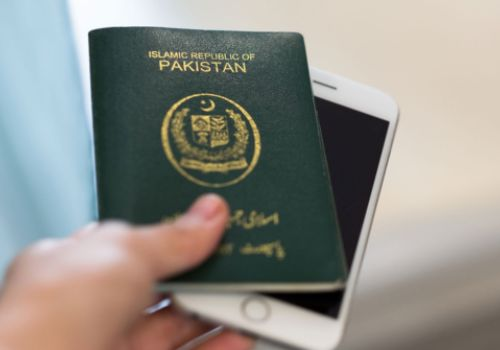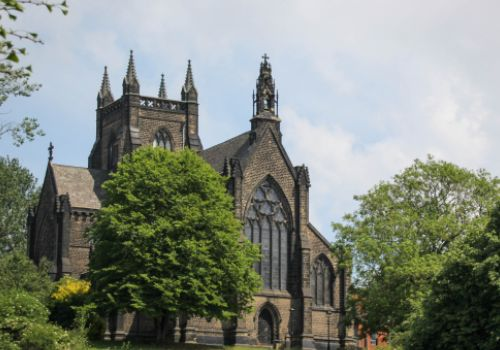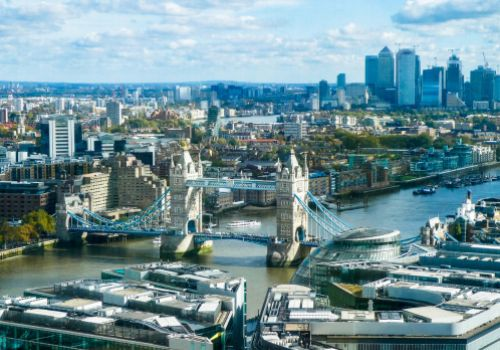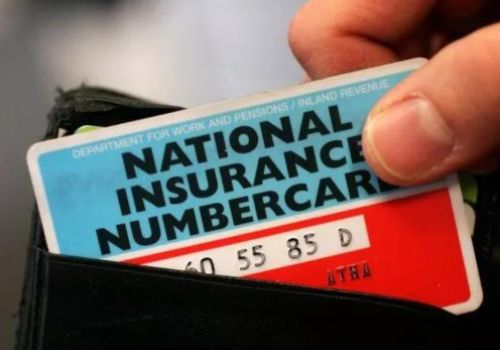Search IMG Library
YOUR SPECIALISM- See all
- Gastroenterology
- Microbiology
- Urology
- Rheumatology
- Stroke Medicine
- Ophthalmology
- Oncology
- Neurology
- Histopathology
- Haematology
- ENT Surgery
- Acute Medicine
- Anaesthetics
- Respiratory
- Dermatology
- Geriatrics
- Radiology
- Surgery
- Paediatrics
- Psychiatry
- Emergency Medicine
- Critical Care & ICU
- General Medicine
41 blogs found

Opening a New UK Bank Account
Once you've arrived in the UK, how do you set up a new bank account?
There are many things to consider when setting up your new life in the UK, one of which is opening a new bank account. To help, we put together a few tips and suggestions to get you started, including the following topics:
Options can be confusing
Do I need a new bank account?
How do you set up an account and what do you need?
Once your account is open, what next?
Monitoring your account
Which bank should I choose?
The main five banks
Ethical banking
There are various different, and whilst one type of bank will suit one person, it may not suit everyone. So, it is important to shop around and find the right bank account for you.
Options can be confusing
When choosing a bank account, it can get confusing. There can be accounts that are simple to set up, with no fees, or accounts that require a monthly fee. Equally, you now have the option of online banking with banks that have few or no local branches at all, or you may prefer a bank that has a branch nearby, so you can pop in anytime.
We have taken a look at the easiest to set up, but as above, they may still not be the right account for you. If you want to discuss further after reading this blog, why not give us a call and one of our specialist consultants will answer any questions you may have.
Do I need a new bank account?
Before we look at specific examples, it is important to mention why setting up a bank account is important.
Firstly, you will need to notify your employer where to pay you!
And secondly, a good bank account will offer ease of use, support you in building your credit score (important for your future in the UK), pay bills, and easily check your balance.
How do you set up an account and what do you need?
Similar to a lot of administrative tasks, to set up an account you will need to make an appointment with the bank and bring along the right documents.
Setting up an appointment:
Most banks won’t let you drop in, so it is a good idea to call in advance and schedule in your appointment. The appointment will be focused on discussing your situation in order to open the account.
Required documents:
Once you have booked the appointment you can then start to prepare the documents to bring with you. Basically, one document to prove your identity and one to prove your address.
To prove your identity, you will need one of the following:
Passport
Driver’s licence
EU ID Card
Every bank has its own idea of how to prove your address, the following are widely accepted:
Tenancy agreement or mortgage statement
Electricity or gas bill, dated within the last 3 months
A current Council Tax bill
However, as an IMG you will be new to the UK, so you might not have any of the above as evidence of your address. The good news is that most banks will accept a letter of employment from your Trust (employer) written to the bank.
You can request an employment letter from your Trust HR department. This must confirm:
your home address
include your name
D.O.B
you are employed by the Trust
the starting date of your role
your salary
duration of the contract
It must be on letter headed paper, stamped, signed and dated. Speak to your IMG Consultant who will be happy to help you set this up.
Once your account is open, what next?
Once you have completed your meeting (usually around an hour), your account will be set up and ready to use.
Now that you have your new account number (8 digits) and sort code (6 digits) you can provide these to your payroll department ready for your first pay cheque!
Don’t forget you will also need your NI number! Read our blog on how to get yourself a NI number if you haven't already.
You will also receive your bank card and pin code in the post, these are usually delivered separately.
If you receive one but not the other a day or so after, then contact the bank and they will reissue these. These usually arrive approximately 5 working days after setting up the account, but your bank will advise on the specific number of days so that you can keep an eye out for their arrival.
Once arrived, you can use this to make payments everywhere, including online. If you want to change the pin, you can change this at most bank machines to something that you will remember! Be sure to choose memorably but randomly, not 1234!
Monitoring your account
Now that you are set up, most banks will offer an online account to monitor your income. Most have an app that you can download to your smartphone to manage outgoings and transfers.
Which bank should I choose?
With the banking market bringing a wide range of accounts and banks, it is hard to navigate through all the accounts on offer.
The most important advice we can give is to shop around. Check online and compare what is on offer across a wide range of banks. Often, it can also be easier to open an account with one of the bigger UK banks.
Here are a few things to consider when selecting your account and discussing what is offered during your meeting with the bank:
Examine digital features – online and mobile access via apps and online banking etc. It is beneficial to access your account anywhere, helping you monitor your outgoings and identify fraud.
Check if the account has monthly fees – most standard current accounts don’t, but premium services usually have a monthly charge.
No minimum balance requirement - good banks don’t have these!
No limitations on the number of transactions – you want to be free to make as many, or little transactions as you want.
Free ATM access, so you can withdraw money when needed.
Check overdrafts and associated fees, you don’t want any unwanted charges.
Check if the bank has several branches, including one local to you. You may however prefer to use services offered online, which would open more options up to you.
Some banks offer specific accounts for people who have recently relocated to the UK, usually called new to the UK accounts.
You can also chat to an advisor online to answer any questions you may have before you make the decision to arrange an appointment, check the bank websites for web chat options.
Whatever type of banking suits you, it is always best to research extensively, especially online, which will give you a full idea of what they offer.
The main five banks:
The five main banks in the UK are:
Natwest
Royal Bank of Scotland
Lloyds Banking Group
Barclays
HSBC
Opening an account with these banks is usually easy, and they offer a range of accounts with online options.
Another popular option is to set up a Monzo account as they are very quick, easy to set up - whilst they offer a useful mobile app platform which makes it easy to keep track of your expenses. They also offer free payments and withdrawals outside of the UK whilst are an FSCS approved bank so offer the same security as one of the main five banks.
Ethical banking:
Ethical banks are those that invest your money transparently and only business, companies and investments that do not have a harmful impact on local communities and the environment. The following two are good options:
Triodos Bank offer a great option for Ethical Banking. They invest their money transparently and into projects and trusts that benefit local communities and the planet we live in. They do not invest in any fossil fuel companies or any business that has a harmful impact. Our directors and our business bank with Triodos.
Co-operative Bank offers a range of accounts and can be set up online easily.
IMG Jobs
Search and find live NHS doctor jobs in the UK
IMG Resources
In our IMG Resources library you can read more useful articles on finding an NHS trust doctor job, pay scales & doctor’s salary in the UK, relocation and much more!
Get in Touch
Get in touch using the buttons above (and below) to discuss doctor job opportunities in the NHS, including discussions regarding a typical doctor salary in the UK and the most suitable hospital locations for you.

Pakistani Protector Stamp
Here we take a look at an essential document for any Pakistani doctor looking to work outside of the country – the Pakistani Protector Stamp.
In this article we will look at what exactly the protector stamp is and consider the following topics:
What is the Pakistani Protector Stamp?
Do I need the Protector Stamp?
Life Insurance
How do I get my passport stamped?
Documents you will need
The process
I have my protector stamp. What happens next?
What is a Pakistani Protector Stamp?
The protector stamp is an actual passport stamp given to any Pakistani travelling abroad on a work visa. It is an official Pakistani government requirement and without the protector stamp you will not be allowed to travel.
In addition to allowing you to work abroad, it will also cover you for life insurance, with the person you nominate receiving one million Pakistani rupees in such an event.
Do I need the Protector Stamp?
Every intending emigrant is legally bound to get their foreign service agreement protected from the concerned Protectorate of Emigrants (PE) office in Pakistan.
It is important to remember that the protector stamp is needed alongside your offer of employment and your visa. Visits to the UK for leisure or PLAB 2 do not require the Pakistani Protector Stamp.
As well as granting you access to work overseas, the Pakistani Protector Stamp will also cover you for life insurance to a figure of PKR 1,000,000
Life Insurance:
Whilst life insurance is an obvious perk, you do have to pay for it.
You will be required to deposit PKR 2,500 to cover life risk for a sum of PKR 1,000,000.
This insurance is valid for five years.
There are also a number of other benefits that come once your life insurance and protector stamp are in place, you can read through them on the Pakistani Government website here.
How do I get my passport stamped?
You will need to attend an appointment at your local Protectorate Office in order to receive the stamp.
The process of getting your Pakistani Protector Stamp can be a little arduous. Specific documents are required and be prepared to spend up to one whole day completing the process.
Documents you will need:
Your Visa work permit
Contract or a conditional offer of employment from the UK employer
Pakistani passport
Pakistani CNIC (Computerised National Identity Card)
Next of kin information (including CNIC for recipient of insurance compensation)
Medical report
Bank challan receipts
Life insurance
Undertaking form
One passport photo
Please note, until very recently NICOP was an essential document for this process as well. There has been a little confusion over this recently so if you have a card already, it does not hurt to bring this along with you.
It is best to make any copies of your documents in prior to attending your local Protectorate Office, it will help you avoid any delays once you are there and make for a smoother process.
The Process
Attend your local Protectorate Office early in the morning with the original copies of your documents. You can find your local office here.
The main reception will direct you to a window to show the checking officer your CNIC, passport and the copy of your UK visa.
As soon as your visa copy is signed, you will need to take this and the rest of your documents to the next window to submit the rest of your documents.
Once these are ready you can expect to wait a few hours until your passport is stamped.
I have my Protector Stamp. What happens next?
You need to have your passport stamped once you have a job offer and work visa, so this should be one of the last steps before relocating.
Once your passport is stamped you will be cleared to work outside of Pakistan and begin your journey in the UK!
IMG Jobs
Search and find live NHS doctor jobs in the UK
IMG Resources
Read more useful articles on finding an NHS trust doctor job, pay scales & doctor’s salary in the UK, relocation and much more!
Get in Touch
Don’t hesitate to get in touch using the buttons above (and below) to discuss doctor job options in the NHS, including discussions regarding a typical doctor salary in the UK and the most suitable hospital locations for you.

8 Reasons to move to the UK
It is great to hear first-hand from overseas doctors the main reasons why they have enjoyed their move and quickly settled into life in the UK.
We enjoyed them so much that we have put together some of the best reasons to move to the UK (although there are hundreds!)
8. Culture
The UK is bursting with art and culture! Cultural diversity is the backbone of British life with workplaces and communities embracing diversity. The UK also has some of the greatest museums, art galleries, music venues, sporting events and theatres that the world has to offer. British culture has its roots in its people who live across its four countries, England, Scotland, Wales and Northern Ireland. Each one has its own traditions and customs to explore and get involved in, everyone is welcome to join the fun! Culture vultures certainly won’t be disappointed!
7. Multicultural
The UK is truly multicultural, welcoming people from all over the world and embracing diversity. There are over 300 languages spoken in London alone, it can be said that the capital city of London is the most culturally diverse city in the world. It isn’t just London, everywhere you turn the country celebrates and embraces its multiculturalism. From Glasgow to Leeds and Birmingham to Manchester, the UK is diverse and distinct in equal measure.
6. Healthcare
Once a resident, you have access to the National Health Service (NHS) – free at the point of access for all. Britain is a world leader when it comes to healthcare, medicine and medical research. It is also home to some of the best hospitals in the world. The NHS is something that all Brits are proud of, and very grateful for, especially at times of emergency. The UK also attracts academics, researchers and medical practitioners from across the globe, making it a world class place to work.
5. Education
The UK has some of the best schools and universities in the world. Renowned universities are on offer right across the country and you would be hard pressed to find a better place to study than the UK. The UK has a reputation for word class schools, research and teaching. What better place to learn!
4. Natural world of beauty
Great Britain has scenery for everyone to fall in love with. From rolling hills, sparkling lakes and lochs to snow-capped mountains, its natural beauty is astounding. Join the community of outdoors enthusiasts and go for a hike over mountains, stroll through fields and hedgerows, explore the coastline of beaches, canoe in the lakes, wild swim in the ponds and rivers, or cycle across the countryside. There truly is something for everyone to explore.
3. Finding a job
Industry and services stretch across the whole country, and the UK has a huge range of jobs to offer. With demand for skilled workers increasing every year, the chances of finding employment are greatly increased. It is also a great place to work! As an IMG, you are in demand!
2. Location
The UK is perfectly positioned for short trips if you want to explore Europe. With commercial airports across the whole country, ferry ports and the Eurostar train leaving from London, travelling out of the UK is easy. It can be cheap too!
1. The people
English, Scottish, Welsh and Northern Irish, the people of the UK are renowned globally for their hospitality. A warm welcome awaits, and no doubt a dose of the Brits keen sense of sarcasm. But don’t fret, sarcasm is usually said with a smile and kind heart ;-) We look forward to welcoming you to the UK as you embark on your new career in the NHS!
IMG Jobs
Search and find live NHS doctor jobs in the UK
IMG Resources
Read more useful articles on finding an NHS trust doctor job, pay scales & doctor’s salary in the UK, relocation and much more!
Get in Touch
Don’t hesitate to get in touch using the buttons above (and below) to discuss doctor job options in the NHS, including discussions regarding a typical doctor salary in the UK and the most suitable hospital locations for you.
For regular news and updates, follow IMG Connect on social media using the links below:

12 Reasons why the UK is great!
We just love the UK, and so do our IMGs!
It has been great to hear first-hand from overseas doctors the main reasons why they have enjoyed their move and quickly settled into life in the UK. We enjoyed them so much that we have put together some of the best reasons why we think that Great Britain is great!
12. Cities
There are currently a total of 69 cities in the UK, 51 in England, 7 in Scotland, 6 in Wales and 5 in Northern Ireland. Each one has its own diverse history and culture to explore. Cities in the UK are bursting with cultural diversity. They are truly multicultural places to live, work and visit, welcoming people from all over the world and embracing diversity. There are over 300 languages spoken in London alone, it can be said that the capital city of London is the most culturally diverse city in the world. It isn’t just London, cities have their roots in its people who live across its four countries, England, Scotland, Wales and Northern Ireland. Each one has its own traditions and customs to explore and get involved in, everyone is welcome to join the fun!
11. National Parks
The UK’s 15 National parks span the length and breadth of the country and are open to the Public at all times. From deep waters to high peaks, discover the unspoiled landscapes that are open to everyone. Both beautiful and rugged in equal measure, these breath-taking landscapes are truly special places for the whole family to enjoy. An adventure awaits you in the wilds of the mountains, or the ancient woodlands full of intrigue.
10. Weather
Not the most reliable, but the British weather gets everyone obsessed. Everyone loves to talk about it, and why not! Hot sunny days at the beach, rainy days in the city, or rainbows across the landscape, the UK has it all – so join the fun and start talking about it! Just remember to pack an umbrella.
9. Music
For decades British music has taken the world by storm. Blues, rock, folk, metal, ska, punk, rock’n’roll, jazz, classical, electronic, hip hop, pop… there is something for everyone with bustling music scenes up and down the country. Not only can you find British music to follow, but the UK is a hub for diverse musical tastes and cultural difference, with world music accessible with ease.
8. Wildlife
Get closer to nature and get outdoors. With plenty of outdoor attractions, parks and countryside to explore, you are never far away from spotting some of the British countryside’s finest, rarest and most magnificent species. From spotting Golden Eagles soaring high in the mountains, to falcons in the city. Or whale sharks to whales! The UK has a myriad of amazing wildlife to spot! And the good news… nothing is so poisonous it will kill you!
7. History
From ice ages to invasions, British History is diverse with traces left everywhere you look. Centuries of conquerors and migrants have shaped the United Kingdom, and there is plenty to explore. Historical sites, museums, castles and cathedrals will fascinate! Britain wasn’t always called Britain, in fact that was a name made up by the Romans!
6. Festivals
From the annual International Festival and Fringe in Edinburgh, to Glastonbury or the Manchester International Festival, these events come in all shapes and sizes, helping make the UK a hub of creativity and cultural events that attract the biggest names from all over the world. Great fun for the whole family to enjoy, whatever your tastes.
5. Sports
The British sporting calendar is vast. Major events in 2019 will include the Cricket World Cup, Rugby World Cup and the Women’s World Cup in football. But the month by month sporting calendar is packed full of unmissable events. Don’t just watch from the TV, you have to see these in real life!
4. Landmarks
Everywhere you turn, you will see familiar sights, iconic buildings, bridges and streets. Architectural masterpieces like the Tower of London, the palace of Westminster, Buckingham Palace, Stonehenge, the Angel of the North, Tower Bridge, Blackpool Tower… the list is endless and are all amazing landmarks that everyone should visit.
3. Gardens
The Brits take their gardening seriously, and thank goodness, because there are hundreds of wonderful gardens bursting with colour to enjoy. From grand estates like Abney House, to perfected wonders at Kew Gardens, or even the humble village garden, take a stroll and breathe in the intoxicating smell of honeysuckle.
2. Beaches
Yes, that’s right, the beaches! Britain might not be famous for warm weather, but it has miles of unspoiled coastline and many beautiful beaches to explore. In Britain you are never that far away from a beach, even in London!
1. The People
In such a small country, it might surprise some to know that Britain is one of the most diverse, rich and multicultural countries in the world. And we celebrate it at every chance we can get! Our strength lies in our diversity. We look forward to welcoming you with a warm smile!
IMG Jobs
Search and find live NHS doctor jobs in the UK
IMG Resources
In our IMG Resources library you can read more useful articles on finding an NHS trust doctor job, pay scales & doctor’s salary in the UK, relocation and much more!
Get in Touch
Get in touch using the buttons above (and below) to discuss doctor job opportunities in the NHS, including discussions regarding a typical doctor salary in the UK and the most suitable hospital locations for you.
For regular news and updates, follow IMG Connect on social media using the links below:

How to obtain your National Insurance number (NI)
Attaining your national insurance (NI) number once in the UK is essential once in the UK.
Overseas doctors new to the UK will not have an NI number, and wll need to appy to ensure they are taxed and paid correctly. In this article we’ll help you to arrange your NI by addressing the following questions:
What is a National Insurance number?
Why do I need one?
When do I apply?
How do I apply?
I’ve got my National Insurance number, what next?
What is National Insurance?
National Insurance (NI) is a tax system in the United Kingdom paid by workers and employers for funding state benefits. It is a contributory form of insurance against illness and unemployment, and provides retirement pensions amongst other benefits.
Citizens of the United Kingdom pay National Insurance contributions to become eligible for State Pension and other benefits.
Why do I need a National Insurance number?
A National Insurance number is a unique number assigned to an individual looking to work in the UK. You will keep the same number all of your life.
Your NI number helps to make sure that the National Insurance contributions and tax you pay are properly recorded against your name.
It also acts as a reference number when communicating with the Department for Work and Pensions and HM Revenue & Customs (HMRC).
When can I apply?
You can only apply once you are living in the UK.
Once in the UK you can work for up to 12 weeks without an NI number. However, we strongly recommend applying within your first few days of moving to the UK.
How do I apply?
Call the National Insurance number application line on 0800 141 2075 between the hours:
8.30am - 5pm
Monday - Friday
The phone call will be a 5-10 minute process.
You’ll be asked some questions about why you need a National Insurance number, your background and circumstances. Following this call, you will be asked to attend an evidence of identity interview at your local job center which is followed by an email confirming the appointment.
They will ask you bring as many identity original documents as you can to the interview. Examples of documents which are acceptable are:
valid passport
National Identity card
residence permit or residence card including biometric immigration residency documents
full birth or adoption certificate
full marriage or civil partnership certificate
driving licence
In addition, you should provide:
evidence you are in work or looking for work
proof of address
*If relocating from outside the EU, you will also be asked for your residence permit.
I’ve got my National Insurance number, what next?
If you were asked to provide additional information you will need to do this by the agreed date.
If not, Jobcentre Plus will write to you and let you know whether your application was successful and what your National Insurance number is.
Provide your HR or Payroll department with your National Insurance number as soon as you have it.
Remember to keep the letter safe – you may need it in the future.
IMG Jobs
Search and find live NHS doctor jobs in the UK
IMG Resources
In our IMG Resources library you can read more useful articles on finding an NHS trust doctor job, pay scales & doctor’s salary in the UK, relocation and much more!
Get in Touch
Get in touch using the buttons above (and below) to discuss doctor job opportunities in the NHS, including discussions regarding a typical doctor salary in the UK and the most suitable hospital locations for you.